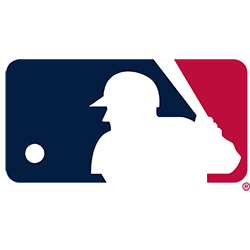 One of the great relationships in sports is ending, as MLB and the players association are ending long-term deals with Topps and entering a new relationship with the MLB-backed Fanatics.
One of the great relationships in sports is ending, as MLB and the players association are ending long-term deals with Topps and entering a new relationship with the MLB-backed Fanatics.
Though there have been plenty of other baseball-card vendors over the years–Fleer, Bowman, Upper Deck, Panini–none have the longevity and tradition of Topps. Indeed, for a whole generation of fans, baseball cards and Topps are pretty much synonymous.
But the relationship between the three entities is ending, with MLB and the players association agreeing to a new licensing deal with Fanatics. The licensing deal with the players union ends next year, while the licensing deal with MLB for the use of logos ends in 2025.
The deal is a little self-serving for MLB. Andy Redman, executive chairman of Topps, said there was never any indication that nonrenewal was on the horizon, per The New York Times:
“Not only were we unaware that Major League Baseball was negotiating with anybody other than Topps regarding our rights beyond 2025,” he said, but Topps was told on Thursday by Noah Garden, the league’s chief revenue officer, “that a deal was completed, finalized and exclusive with Fanatics.”
“Similarly, as recently as the All-Star Game on July 13 in two one-hour conversations, Evan Kaplan from M.L.B. Players Inc. never indicated to Topps that the union was negotiating with any other parties about our rights,” Mr. Redman added. Mr. Kaplan is managing director of the players’ union.
Fanatics is a rapidly growing player in the sports world, counting both MLB and NFL among its investors. So it would make a certain amount of business sense for MLB to work with the players on a new licensing arrangement that would benefit one of its investments. In fact, the plan apparently is to work more closely with MLB and the players association than Topps did:
Fanatics will create a new trading card company and give both Major League Baseball and the players’ union seats on the board, said a person familiar with the plans, who spoke on the condition of anonymity because those plans were not yet public. The union and the league will get a stake in the company.
A likely next act: Fanatics likely will spend some of its billions in the bank to acquire an existing card company–maybe even Topps. Fanatics is an e-commerce firm that also manages some team stores, but in terms of original offerings, Fanatics lacks experience and staffing; its limited originals are meh at best. The firm wants to be everything to everyone, looking to be involved in ticketing and sports gambling as well. Topps, on the other hand, has shown a lot of imagination in recent years when it comes to cards and collectibles, whether it be Project70 or a new licensing deal with the Negro Leagues Baseball Museum for cards and collectibles. Would Topps have been interested in working closer with MLB? We’ll never know. But it’s now pretty clear that the MLB model for business when it comes to dealing with important vendors is to demand a piece of the action: whether it’s the takeover of Minor League Baseball or the purchase of Rawlings (and later Easton) with Seidler Equity Partners, MLB is now closely interlinked with business partners past just a contractural relationship.
Topps isn’t exactly a mom and pop, however: it’s controlled by private equity firm Madison Dearborn and Michael Eisner’s investment firm, Tornante. And the firm has plenty of other licensing deals apart from baseball, including superhero and Star Wars merchandise licensed through Disney. But the loss of the baseball license meant Topps needed to cancel a stock offering.
